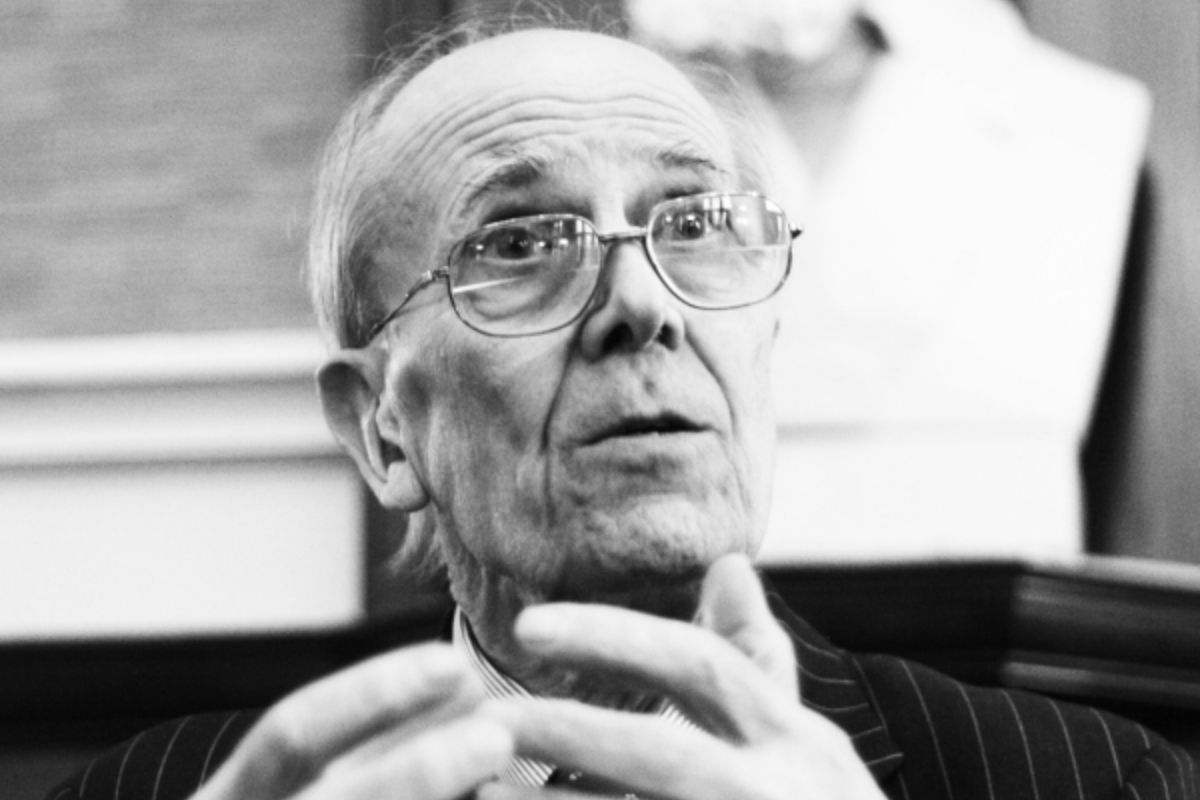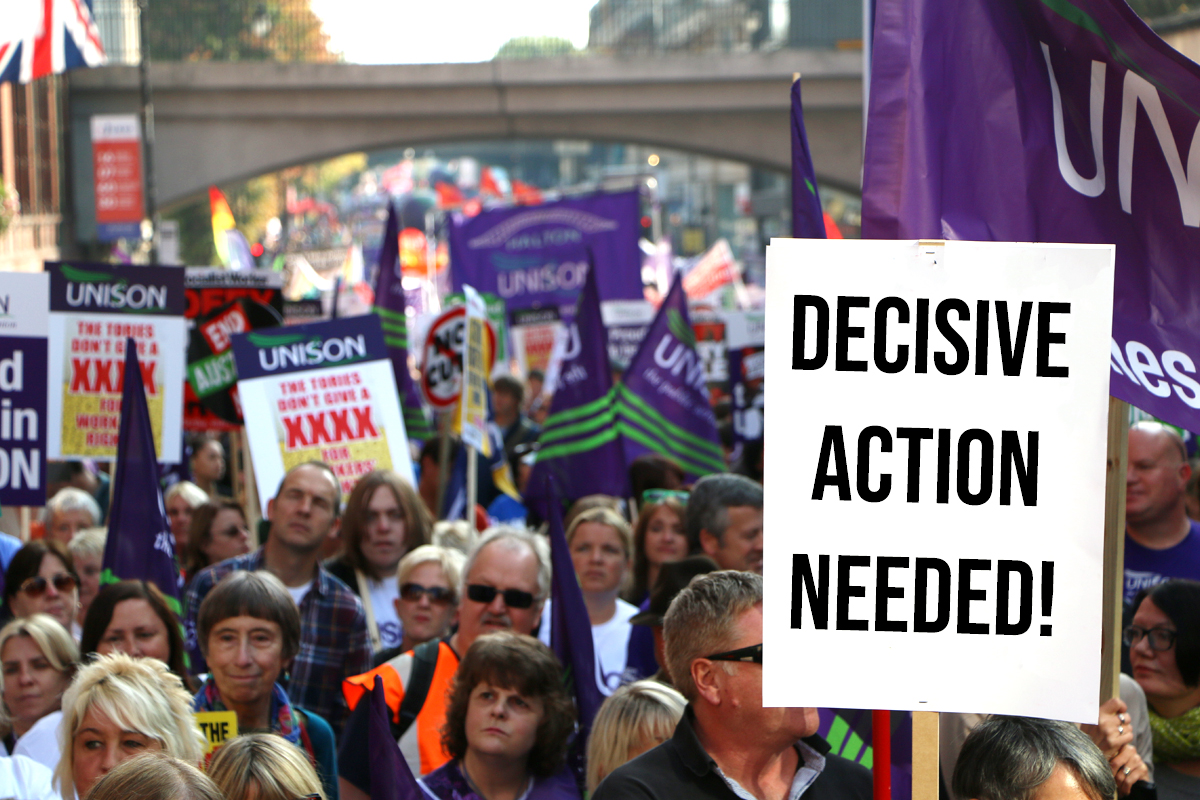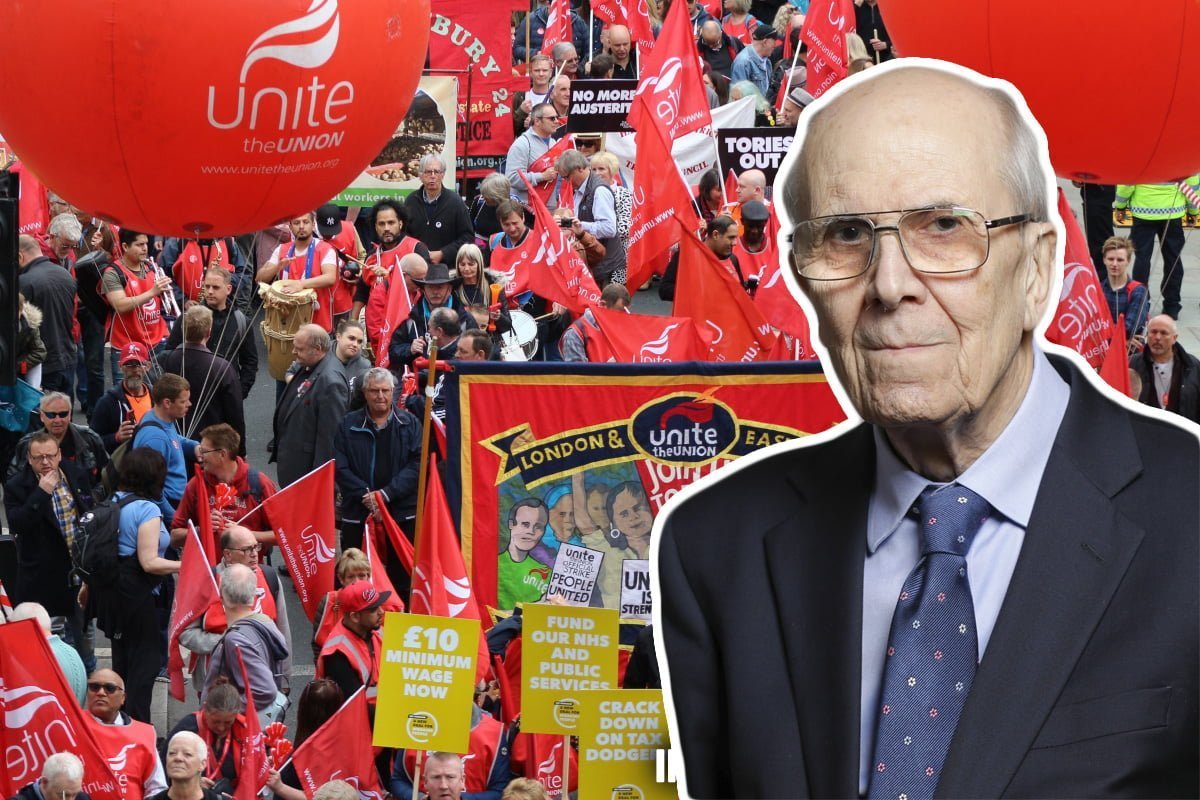As the spy cops saga continues to unfold, a bombshell revelation in a recent parliamentary meeting has exposed the extent to which the high offices of government were involved in this scandal.
Richard Burgon recently organised a parliamentary meeting on Zoom concerning the spy cops scandal, and the role British security services play in spying on trade union members and other activists in Britain. The meeting also addressed the attendees’ concerns regarding the current public inquiry into undercover policing, chaired by Sir John Mitting.
The meeting was attended by members of the Socialist Campaign Group, blacklisted construction workers, and activists in the labour movement. One activist present was Dave Smith from the Blacklist Support Group, who has been an outspoken champion of the campaign to expose the use of spy cops against the labour movement.
Establishment mouthpiece

One Zoom guest turned up unannounced, however. This was none other than the Tory Lord, Norman Tebbit. The same Tebbit who infamously dismissed rioters in the early 1980s, by referring to his father getting “on his bike” to find work in the 1930s.
Tebbit was the Tory Employment Secretary from September 1981 until October 1983 in Thatcher’s first government. He then went on to become the Trade & Industry Secretary.
Tebbit is in every sense a member of the British establishment. As such his presence at the Zoom meeting was something of a surprise. This was not as surprising, though, as the news he brought with him.
Apparently at the Zoom meeting Tebbit was his normal combative self. He put up the defence that spying on trade unions and their members was justified in fighting terrorism!
This was of course to be expected. Tebbit was always one of the most reactionary members of Thatcher’s gang, who once described striking workers as “red fascists”.
What happened next was stunning, even given that spying on trade union members has been well documented.
Tebbit admitted in his own words that when he was Employment Secretary he was briefed by Special Branch on the activities of leading trade unionists, even to the point of knowing when and where they had gone on holiday!
Collusion
Tebbit also stated that during his time as employment minister, he’d had secret meetings with the then-general secretary of the Electrical, Electronic, Telecommunications and Plumbing Union, Frank Chapple.
Tebbit had regularly discussed with Chapple how to combat left-wing members of the union, and ensure that the right wing remained in control. Chapple was later rewarded with a peerage in return for his services to the establishment.
Tebbit’s frank admission was in response to Dave Smith’s contribution in the meeting. Smith asked who knew about the spying, and how far up the establishment ladder it went. The answer is that it obviously went up to Thatcher’s Employment Secretary at the very least.
“I got briefings from Special Branch on what some of the hard-left leaders were up to but I got far more briefings from my friends who were union leaders”
Lord Tebbit in @thetimes
Both the #spycops inquiry & trade unions need to investigate this outragehttps://t.co/dPdFNk1TsH— Dave Smith – Blacklist Support Group (@DaveBlacklist) March 18, 2021
Smith did respond to Tebbit at the end of the Zoom call, noting that “…during our long campaign and at the public inquiry we have continually asked how high up the political chain intelligence about union members gathered by police spies was shared. Thank you for confirming that it went all the way to the top of the government.”
Tebbits’ remarks prove in the language of everyday life that the state is no neutral arbiter in society, but an active part of the class struggle – on the side of the bosses.
Even worse, some of the most hardline right-wingers within the labour movement itself have actively collaborated with this disgraceful practice, in order to keep their respective unions under control and to keep themselves in the clover.
Brazen
Of course, Tebbit didn’t reveal anything that activists haven’t long known about the government’s role in the class struggle. But to hear a former government minister openly admit this is quite remarkable.
One unanswered question is why did Tebbit even attend this meeting and make these revelations, when there was no obligation on him to do so?
It appears that Tebbit is delivering a warning to the trade union movement from the establishment: that this is what we did in the past; and this is what we are still doing today.
Tebbits’ brazen approach reminds one of a mafia boss, trying to intimidate his victims. It’s as if he said: ‘That’s a nice trade union movement you’re organising. It would be a shame if it got spied on!’
Tebbit clearly believes that he – and the rest of the establishment – is beyond reproach. He knows full well that any public enquiry will at worst simply give him and any others a mere slap on the wrist.
Indeed Imran Khan QC, on behalf of the Blacklist Support Group, has now formally demanded that Tebbit submits both a formal statement and verbal evidence to the spy cops inquiry, so as to find out exactly what he knows.
We should have no illusions however in this inquiry leading to any real justice or change. This body itself is tied intimately to the state. It is very unlikely that workers who’ve suffered at the hands of state agents can expect much justice from the same body that victimised them.
Sharp lessons

What is needed is strong, militant rank-and-file organisation on the shop floor, as part of a wider effort to gain worker’s control over our workplaces.
Moreover, officials must be kept under the control of the movement they represent, rather than being allowed to scab on it.
A workers’ wage for all labour movement officials would be a very good start. As would making these officials electable, and subject to instant recall if they’re caught going against the interests of their organisations’ members.
Socialists and trade unionists should pay close attention to Norman Tebbit’s words, and understand their significance.
Namely that the state is an instrument for the protection of the interests of the ruling class. The capitalists will always use their state – including all its powers – in order to keep the labour movement in check.
However no amount of spying or rotten trade union leaders can hold back a mass movement of the working class. That is, once workers are mobilised around a socialist programme to change society, with a leadership prepared to go all the way.
Ultimately, the only way to end these corrupt practices is for the working class to take power into its own hands. Only then will we see justice against Tebbit, and all those who have ruined workers’ lives in the pursuit of profit.






